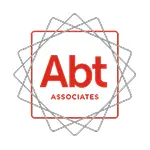Sypnosis
KPI:
Successful completion of capstone projects that produced tangible, data-driven results for the company.
Project length:
Four-week data science training
Employees trained:
Ongoing
At a Glance
Abt faced a challenge shared by many top firms today: hiring data scientists and upskilling current staff. Hiring skilled talent is an increasingly expensive proposition. New hires are typically less equipped with domain knowledge or the institutional knowledge that makes for strategically valuable contributors. After several missed opportunities in both private and public-sector data projects, Abt staff were losing faith in the impact they would be able to drive. As talent development slowed, subsequent staff turnover increased – these factors posed an immediate threat to Abt’s profits, growth, and leading position in the market.
Abt approached Data Society to develop the Abt Data Science Fellowship, a four-week customized course, in which students used real-time, organizational data to build machine learning models and find solutions to business challenges across the organization while developing field-tested skills they could immediately apply on the job.
The Challenge
As is the case for most firms, the challenge facing Abt related to data science was not abstract or hypothetical. Abt was awash in text data and survey statistics, and managers across the organization reported needing “more staff who can carry out machine learning tasks,” as well as the ability to “provide clients with a better understanding of their survey data.” Too many Abt employees processed data manually in Excel, which limited processing speed, precluded exploratory analysis, and restricted their work to tackling smaller datasets.
Building New Skills to Bid on New Business
Abt was struggling to find opportunities to engage staff on the types of interesting projects that made them feel fulfilled in their jobs which dampened its employee retention and slowing its talent development. Abt’s leadership felt these factors had the potential to suppress Abt’s profits and growth in the years to come.
Abt faced a difficult problem shared by many firms today. Hiring data scientists on the job market is expensive, and new hires are typically unequipped with the domain knowledge and company experience that would make them efficient employees. Designing and delivering an internal data science training program was outside of Abt’s core competency.
The Solution
Data Society worked with Abt to identify key areas to focus on for the Data Science Fellowship program and prerequisites for success. Abt identified individuals among its staff who were best suited to upskill in data science to participate in the program and build out capstone projects that consisted of practical applications of data analytics to current challenges at Abt.
A Cascading Effect
The Abt Data Science Fellowship program created a groundswell of interest among employees who wanted to build their skills and do so for the benefit of their current teams. The Fellows built out their skills and organizational network and returned to their team with insights about the challenge that they were working on during the program. Abt staff members – including those both with and without technical backgrounds – were eager to make the most of the data science learning opportunity and apply the skills to drive bottom-line growth for the firm.
Text Mining and Natural Language Processing
Data Society’s four-week program taught Abt Fellows how to program proficiently in Python and apply data-wrangling skills to build unsupervised and supervised machine learning models to text data.
By the end of this workshop, students were able to:
- Mine data to find latent patterns and groups in different types of data
- Build recommender systems
- Build powerful predictive models
- Develop a framework for analyzing data to improve processes and accuracy
Forecasting Behavior with Classification Models
Fellows at Abt already familiar with Python and foundational statistics were taught more advanced skills to upskill their existing abilities over four weeks.
Fellows focused on clustering analyses to find patterns in data and to build classification models to forecast events and human behavior. They were also taught to select and tune classification models to enhance their research and deliver additional value to clients.
The Results
Cross-Functional Team Training
Abt and Data Society ultimately created a cohort of Abt Fellows that drew from all of Abt’s divisions in health, social and environmental policy, and international development. The Abt Data Science Fellowship program trained internal staff in Python, data visualization, and text mining. Fellows increase their proficiency in Python by 117% and their ability to perform visualizations of their analyses in Python by 177%. They also leveraged capstone projects to open up lines of business not previously available to Abt Associates due to new in-house data skills such as text mining.
New Data-Driven Approach to Business Development
The success of these programs goes beyond numbers. Abt found that it could leverage data science skills and data science language in its proposals to clients to win new projects and expand the scope with current clients. Without question, the work that came into the firm as a result of the skills gleaned from the training increased almost immediately.
Abt also found that it was able to offer more in their ongoing projects as well as win proposals that included machine learning, predictive analytics, text mining, and neurolinguistic programming. When Fellows who underwent Python training worked on writing proposals, it won business. Project officers have even insisted on bidding on more machine learning work because of the acumen of their Fellows.
Outside of the increased work avenues, Abt Fellows have created over 50 data science applications to tackle current challenges within the organization and continue to integrate data best practices across their teams.




